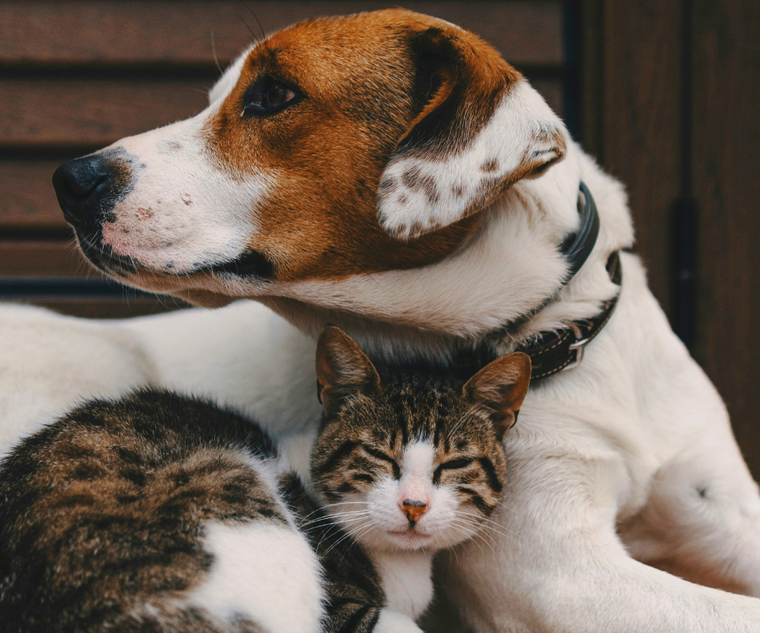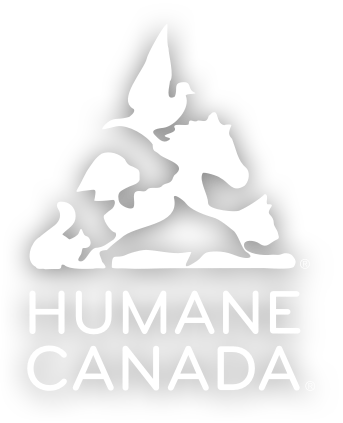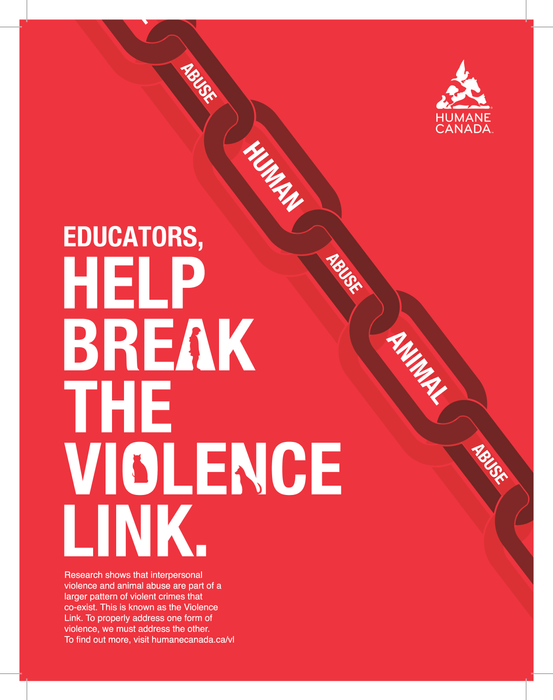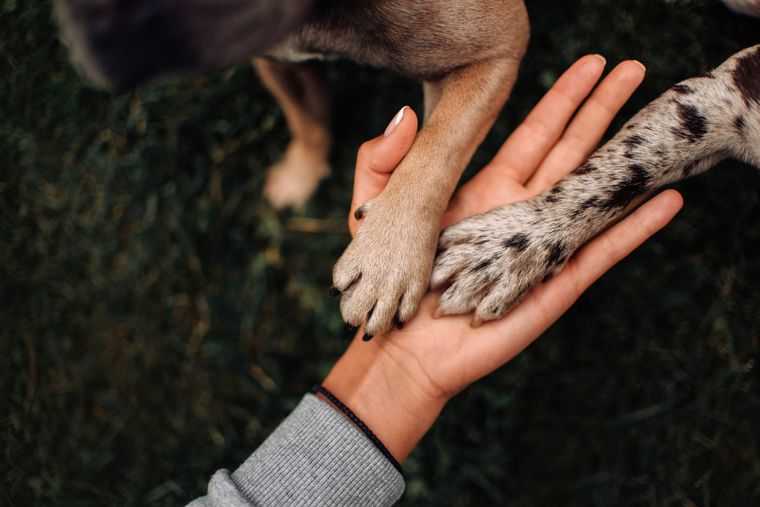

Make a gift from the heart today. Your support is a lifeline for animals in need.

IMPORTANT: If you or someone you know is feeling unsafe because of how your partner or someone else in your life is treating you and your animal(s), please know that you are not alone. You can find support, including a map with shelters that have provisions for pets, at ShelterSafe: sheltersafe.ca/get-help/
The Violence Link Is the Relationship Between Violence Against People and Animals
Research shows that violence toward people (interpersonal violence) and violence toward animals (animal cruelty) are part of a larger pattern of violent crimes that co-exist. Cases of inter-partner and gender-based violence, sexual abuse and child abuse (including child sexual abuse), gang violence, youth crime, organized crime, assault, homicide, weapons and illicit drugs also commonly involve animal abuse.

The Canadian Violence Link Coalition (CVLC), formed in 2017 recognizes the link between interpersonal abuse and animal abuse as well as the intersection of vulnerabilities in both populations. Despite evidence illustrating that better outcomes are achieved when a cross-sectoral approach is adopted, animal abuse and human abuse are legislated for and dealt with separately. Further, lack of awareness, education and training on the Violence Link inhibits collaboration between sectors.
The CVLC’s purpose is to bring together stakeholders interested in confronting the human-animal Violence Link to bring about systemic, lasting change by:
Engaging with law and policymakers on relevant legislative and policy developments that recognize the Violence Link
Advancing awareness about the Violence Link among stakeholders through educational and awareness campaigns, conferences, workshops and other similar initiatives
Encouraging a cross-sectoral approach by providing resources and tools for regional coalitions and networks which address the Violence Link on a community basis, such as cross reporting tools
Advancing awareness of the Violence Link and available resources among the Canadian public
Through CVLC the Violence Link Toolkits were developed to help various professions create awareness of the link between interpersonal abuse and animal abuse and how to how to take action. The kits include posters, with powerful graphics and messaging, that can be printed out for your workplace as well as digital files for use on your websites and social media.
Take Action Today! Download the Toolkits and help spread awareness about the critical connection between interpersonal abuse and animal abuse. start sharing these resources now and be a champion for safer, more compassionate communities.
Stay up to Date through the CVLC Newsletter - Sign up today!
A library of past issues is shared below.
To learn more about the Justice and Legislative Affairs Program, please contact program Manager Kerri Thomson: kerri@humanecanada.ca.
Make a gift from the heart today. Your support is a lifeline for animals in need.




